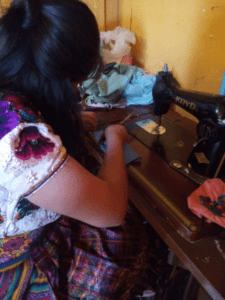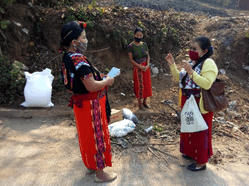
While the coronavirus pandemic has created an unprecedented level of vulnerability for children, families, and communities in Central America, KIND and our local partner organizations continue our commitment to supporting them through our reintegration program for returning migrant children and our gender-based violence prevention programming.
The coronavirus pandemic has exacerbated long-standing challenges in Central America, fueling high levels of violence, including gender-based violence, as well as near complete impunity, environmental degradation, extreme economic inequality, and lack of government accountability. Weak health care systems in the region have been pushed to the brink of collapse by the virus and have left many people without access to basic healthcare.
Many Central Americans have also lost their livelihoods and face extreme food shortages. Lockdown measures in response to COVID have intensified seasonal hunger in Central America, especially in the region’s Dry Corridor. According to the United Nations Office for the Coordination of Humanitarian Affairs (OCHA), in Guatemala there has been an increase in undernutrition by over 55 percent amid the COVID restrictions, while 270,000 households in Honduras have needed food assistance.
The prevalence of intrafamilial violence has also increased in the lockdown, while organized criminal groups have taken advantage of the crisis by ramping up extortion, sexual violence, and drug trafficking. The communities where they operate are at extreme risk of harm. Decreased capacity of judicial and child protection systems and limited mobility has made it even more difficult for those affected by violence to seek protection and assistance. Governments in the region have also responded to the coronavirus crisis with extreme measures that violate the rights of citizens. These include violent repression of protests over food security and the use of lethal force and imprisonment in response to curfew violations, which can increase exposure to coronavirus.
With support from KIND, our partner organizations in Guatemala and Honduras have developed innovative approaches to respond to the most urgent needs of families and children who have been affected by loss of work and income, food insecurity, lack of health care and information in indigenous languages about how to prevent the spread of the virus, and increased risk of gender-based violence.

